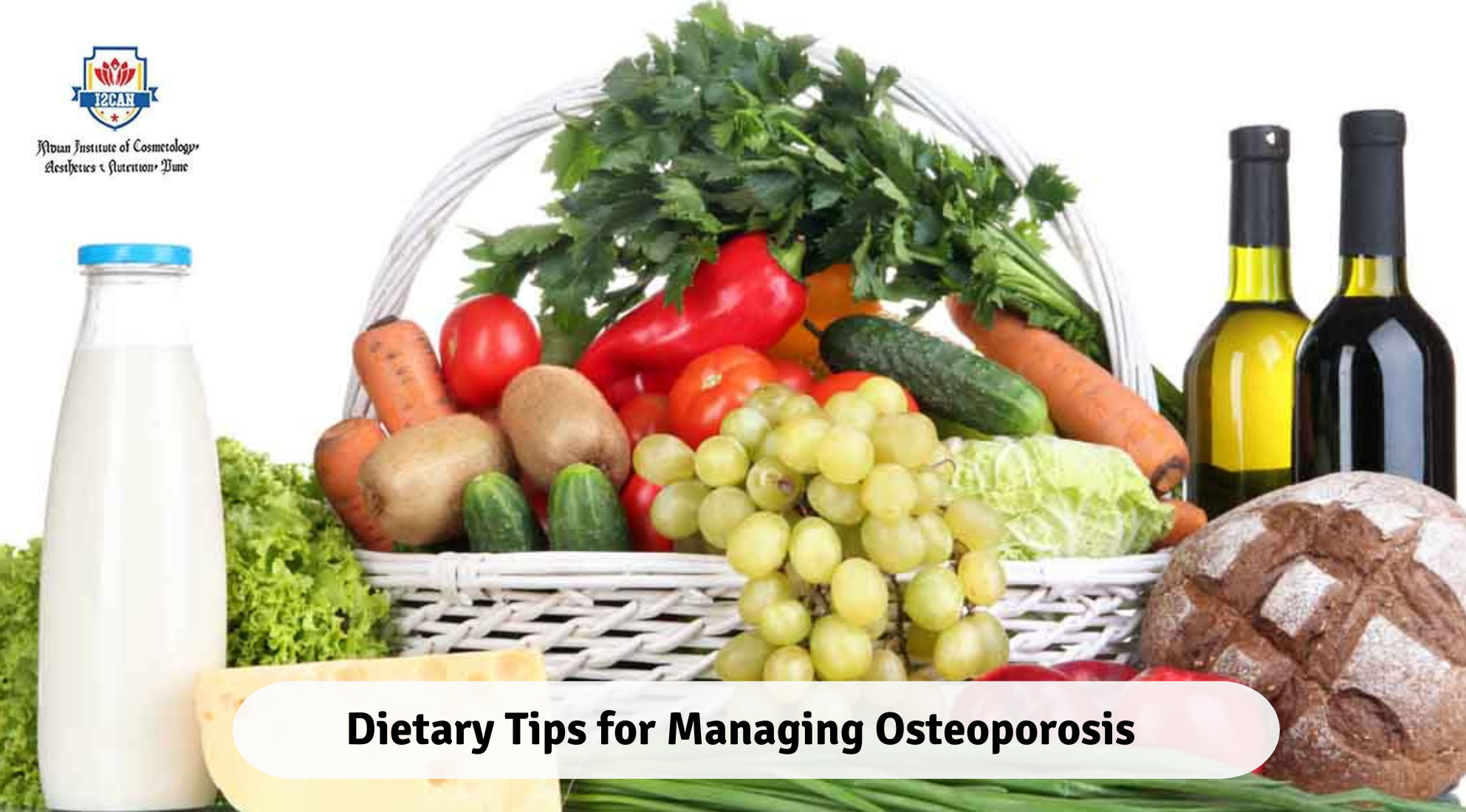Introduction: Osteoporosis is a condition characterized by weakened bones, making them more prone to fractures and breaks. While medical intervention plays a significant role in managing osteoporosis, adopting a bone-healthy diet can also contribute to maintaining bone strength and reducing the risk of fractures. In this blog post, we’ll explore dietary recommendations aimed at managing osteoporosis and promoting bone health.
- Calcium-Rich Foods: Calcium is essential for bone health as it contributes to bone strength and density. Incorporating plenty of calcium-rich foods into your diet is crucial. Opt for dairy products like milk, yogurt, and cheese. If you’re lactose intolerant or follow a plant-based diet, consider fortified plant-based milk such as soy, almond, or oat milk. Additionally, include leafy green vegetables like kale, collard greens, and spinach, as well as calcium-fortified tofu and canned fish with bones like sardines and salmon.
- Vitamin D: Vitamin D plays a crucial role in calcium absorption, which is vital for maintaining bone strength. Make sure to spend time in sunlight to allow your skin to produce vitamin D naturally. Furthermore, include foods rich in vitamin D in your diet, such as fatty fish like salmon, mackerel, and tuna, egg yolks, fortified dairy and plant-based milk, and fortified cereals.
- Protein: Protein is another essential nutrient for bone health as it provides the building blocks for bone tissue. Ensure that your diet includes lean protein sources such as poultry, fish, beans, lentils, tofu, nuts, and seeds. Aim to incorporate protein into each meal to support bone strength and repair.
- Magnesium: Magnesium plays a role in bone formation and density, making it an important nutrient for managing osteoporosis. Include magnesium-rich foods in your diet, such as nuts like almonds and cashews, seeds like pumpkin seeds and sunflower seeds, whole grains such as brown rice and quinoa, legumes, and leafy green vegetables.
- Vitamin K: Vitamin K is involved in bone metabolism and helps in calcium binding to bones, thus contributing to bone health. Incorporate foods rich in vitamin K into your meals, including leafy green vegetables like spinach, kale, and broccoli, Brussels sprouts, cabbage, and fermented foods like natto.
- Limit Sodium and Caffeine: Excessive intake of sodium and caffeine can increase calcium excretion from the body, thereby weakening bones. Be mindful of your sodium intake by limiting processed foods high in sodium and moderating your caffeine consumption from sources like coffee, tea, and energy drinks.
- Limit Alcohol: Alcohol consumption can interfere with calcium absorption and negatively impact bone health. To promote optimal bone health, limit alcohol intake and opt for healthier alternatives like water, herbal teas, or infused water.
Incorporating these dietary recommendations into your lifestyle can play a significant role in managing osteoporosis and promoting bone health. By prioritizing calcium-rich foods, vitamin D sources, lean proteins, magnesium-rich foods, vitamin K sources, and moderating sodium, caffeine, and alcohol intake, you can support your bone health and reduce the risk of fractures associated with osteoporosis. Remember to consult with a healthcare professional or registered dietitian for personalized advice tailored to your specific needs and health status.

